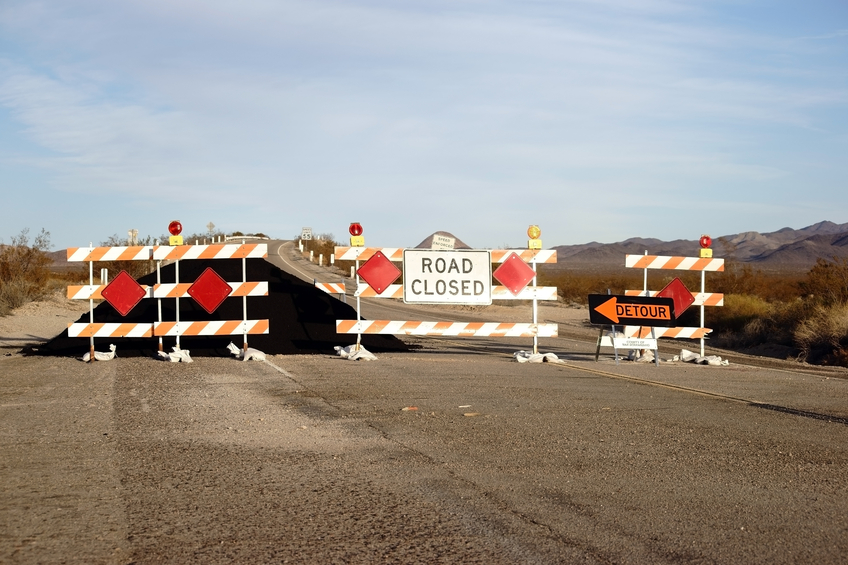North Carolina Transportation and Ethics 15 PDH Discount Package 2
Traffic Bottlenecks Operational Improvements (C06-018)
Ethical Issue: Deciding if Something is a Gift or a Bribe (LE1-007)

This online PDH course primarily covers engineering countermeasures for horizontal curve safety that are relatively low-cost, such as signage and pavement markings.
This course is intended to provide information specifically relating to lower volume two-lane roads and the agencies that manage them. It will help transportation agencies and their crews understand the available countermeasures and how to select and apply them.
This 8 PDH online course is applicable to traffic engineers, local transport agencies, design professionals and personnel who wish to understand the available horizontal curve safety countermeasures and how to select and apply them.
This PE continuing education course is intended to provide you with the following specific knowledge and skills:
- Learning about the two components of safety improvements
- Familiarization with the markings, signs, and pavement countermeasures that are used to improve horizontal curve safety
- Addressing the importance of roadside conditions and improvement opportunities
- Familiarization with the possible means of improving intersections
Upon successful completion of the quiz, print your Certificate of Completion instantly. (Note: if you are paying by check or money order, you will be able to print it after we receive your payment.) For your convenience, we will also email it to you. Please note that you can log in to your account at any time to access and print your Certificate of Completion.

This online engineering PDH course describes bottlenecks and explores near-term operational and low-cost construction opportunities to correct them.
Delays due to traffic congestion seem like an unavoidable, frustrating fact of life. Or are they—unavoidable, that is? This course focuses on traffic congestion caused by bottlenecks—which are specific locations on the highway system where the physical layout of the roadway routinely cannot process the traffic that wants to use it and results in localized, recurring congestion.
By focusing on relieving localized, recurring congestion at bottlenecks, this primer can help agencies identify the right fix for a particular bottleneck. What’s more, the right fix for a localized, recurring bottleneck is usually spot-specific, more effective, less expensive, and faster to implement than building a new facility.
This 6 PDH online course is applicable to traffic engineers and planners, conceptual and detail designers, and other technical professionals who are interested in gaining a better understanding in traffic bottlenecks operational improvements.
This PE continuing education course is intended to provide you with the following specific knowledge and skills:
- Understanding bottlenecks and congestion
- Learning about the different strategies of resolving congestion
- Knowing how to structure a localized bottleneck program
- Identifying, assessing and addressing bottlenecks
- Incorporating quick-fix bottleneck solutions into the Congestion Initiative
- Understanding how agencies are dealing with bottlenecks (case studies)
Upon successful completion of the quiz, print your Certificate of Completion instantly. (Note: if you are paying by check or money order, you will be able to print it after we receive your payment.) For your convenience, we will also email it to you. Please note that you can log in to your account at any time to access and print your Certificate of Completion.

This online engineering PDH course will establish, through the presentation of many examples, the principles of distinguishing between a gift and a bribe.
The federal government has formulated detailed rules covering gifts given to executive-branch employees in many situations. The rules are published in the Code of Federal Regulations (CFR) and are illustrated through many examples. Even though the examples are intended for government employees (many of whom are engineers), they also apply to private-sector engineers in similar situations. This course presents selected CFR examples that furnish guidance on the ethics of gift giving in situations that are especially relevant to engineers.
This 1 PDH online course is intended for engineers seeking guidance on distinguishing between ethical gift-giving and bribery.
This PE continuing education course is intended to provide you with the following specific knowledge and skills:
- Familiarizing with definitions of a bribe and a gift
- Knowing the bribe status of a gift based on a personal relationship
- Understanding the conditions under which gifts to spouses are acceptable
- Knowing the need to avoid even the appearance of a gift being a bribe
- Recognizing when gifts involving free attendance at meetings and conferences are acceptable
- Understanding the importance of the cumulative effect of receiving even small gifts on a periodic basis
- Learning the importance of gifts received when on assignment rather than outside of work
Upon successful completion of the quiz, print your Certificate of Completion instantly. (Note: if you are paying by check or money order, you will be able to print it after we receive your payment.) For your convenience, we will also email it to you. Please note that you can log in to your account at any time to access and print your Certificate of Completion.